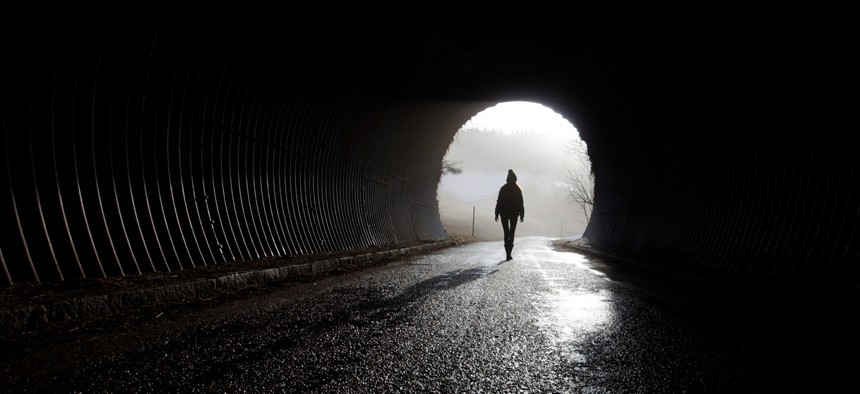Living When Things Suck in Government

istock.com/Sophia Floerchinger

Connecting state and local government leaders
COMMENTARY | Things are not good right now and it's time to acknowledge it.
This column was first published by Engaging Local Government Leaders, a professional association for local government officials.
It’s hard to continue living in unprecedented times. It's harder still because for many local government officials, like myself, things aren't getting better.
The city where I work, Newberg, Oregon, made international news about four or five times in the past two months and at one point was trending on Twitter because a school district employee came to school in blackface. None of these articles were positive and that was the right stance to take. As the person who receives contact forms from our city website, I’m coming into disheartening messages pretty much every day. At the same time, we hired a new person in the Community Engagement Division, a desperately needed bi-lingual community engagement specialist which represents the first time ever the city has had more than one person on staff that is dedicated to doing community engagement in a full-time capacity.
As this new employee was starting I was left with the task of onboarding him in this insane time. Right now, this city seems like the perfect reflection of the country. There’s political turmoil, truly apparent systematic racism and tension, people who are trying to do their best and improve the community, those who troll on our social media accounts every day, and others just trying to make it from sunrise to sunset.
It’s a delicate balance, you know, onboarding a new employee. Talking about all the work that needs to be done, setting them up on the technology they need, telling them you’ll deal with all of the emails coming in about people boycotting your city, all while they’re still learning where the bathroom is. Then, we got another blow with another member of the leadership team announcing a resignation. As I questioned myself in trying to stay positive in this situation while telling my new team member what was going on, I realized, maybe positivity isn’t what’s needed in this situation.
Instead, I told him about this news, he looked disheartened and I said, “Yeah, this sucks.”
From my experience, the type of person who willingly takes on a local government role, especially one in communications, tends to lead with an ever-optimistic viewpoint. At times, it feels like it’s my role to be the chipper force in the office, putting out literal “Feel Good Friday” newsletters and trying to bolster enthusiasm for projects both to the community at large and internally. It’s draining to continue saying “this is fine” while the walls burn down around you.
As the pandemic has progressed and turmoil continues to be placed on my desk, I’ve often turned to articles online in a hope of feeling a bit less alone in all of this. I have found solace in knowing I’m not the only one that feels this way, but these articles, much like all of us, seem to have a penchant for trying to turn things around by the end by saying “it’s okay.”
Sometimes, it’s not okay. Sometimes in order to be authentic and engage with those around us, we have to acknowledge that things suck. To help people feel less alone, we have to live in the suck. The truth is, things can’t get better until we acknowledge, recognize, and spend time with where things truly are today.
So instead of offering words of enthusiasm and trying to mitigate the suck, I’m going to ask questions. Questions that I’m trying to remember as I onboard our new employee. Is there space in the office for people to not be okay? Are employees able to be authentic in requesting mental health days? Am I advocating for people to actually talk about the suck, or just asking people to move on?
Living in a time that sucks is uncomfortable. Whenever I deal with pain, my automatic response is to make a joke, try to laugh it off, offer words of encouragement, and then brood on my own time. But, if we want to be better workplaces and create better relationships, it’s important to be able to say things are not okay. It’s important to let employees be human. It’s important to live with the reality of the situation.
This all starts with being authentic ourselves, so take this article as my own attempt at being authentic today. Right now sucks, and I’m living with it.
Lacey Dykgraaf is a community engagement manager for Newberg, Oregon.

NEXT STORY: Snowy Roads Will Be Cleared, But It Will ‘Take Extra Time’




